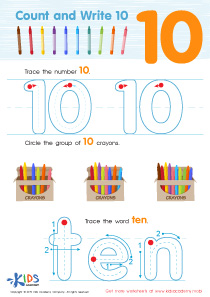Normal Numbers 11–20 Worksheets for Ages 5-6
4 filtered results
-
From - To
Introducing our captivating Normal Numbers 11–20 worksheets, meticulously crafted for Ages 5-6. These engaging sheets are designed to nurture a love for numbers in young learners, making math both fun and accessible. Through a variety of interactive activities, children will explore and understand the numbers 11 through 20, laying a solid foundation for their mathematical journey. Ideal for both classroom and home use, these worksheets are tailored to stimulate curiosity and enhance counting skills in early learners. Dive into our Normal Numbers 11–20 collection and watch your child's confidence and competence in mathematics blossom!
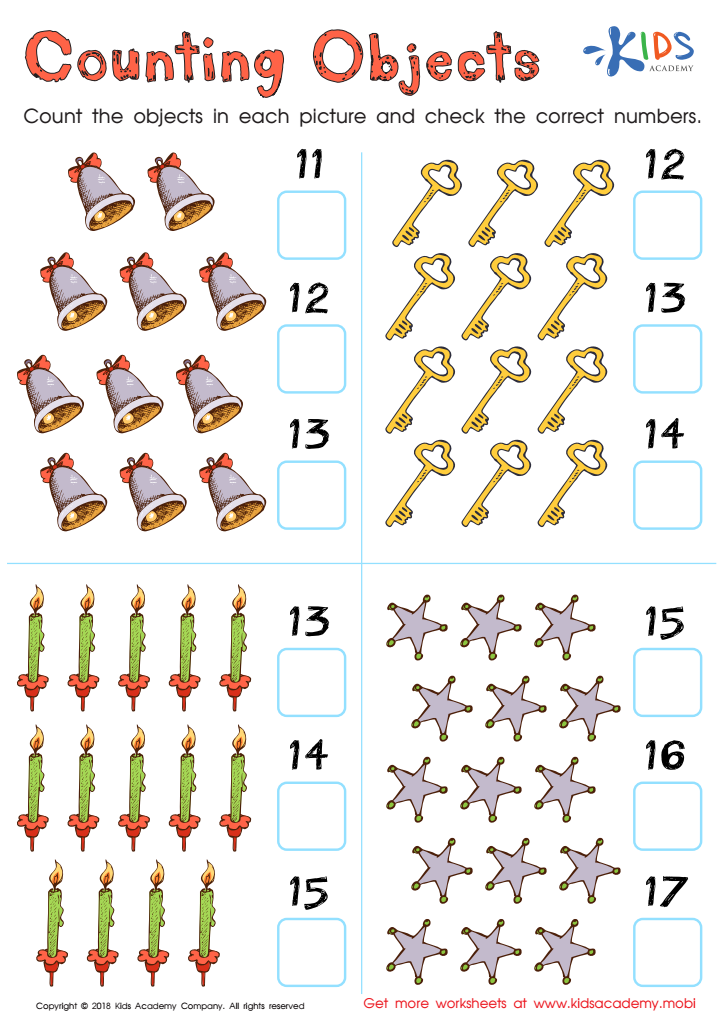

Counting Numbers Worksheet For Kindergarten
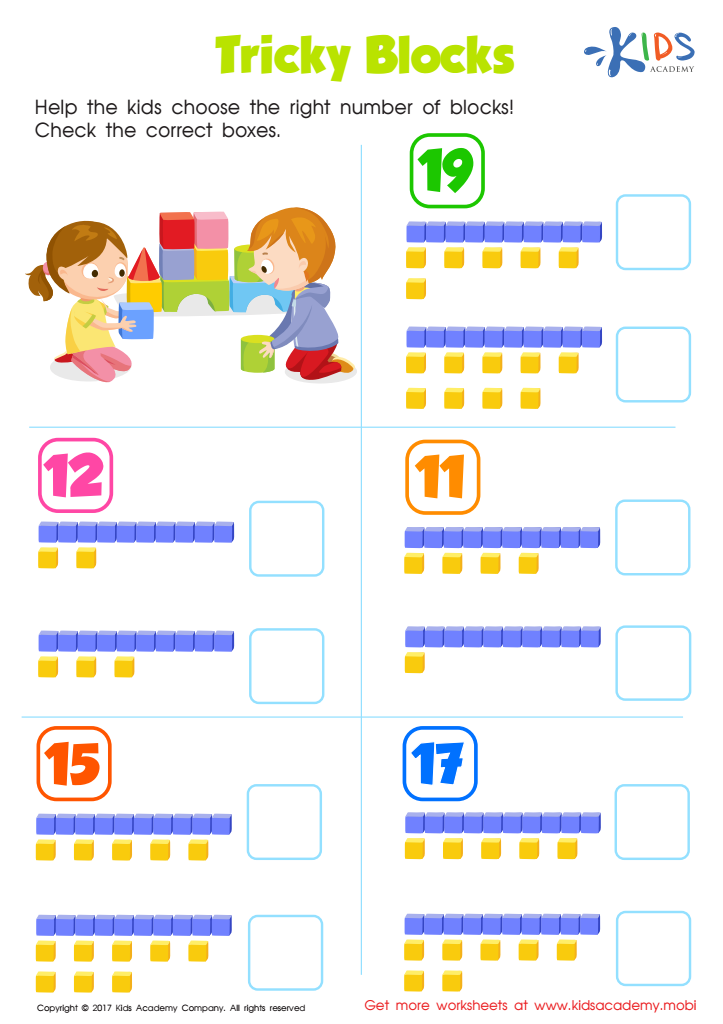

Tricky Blocks Worksheet
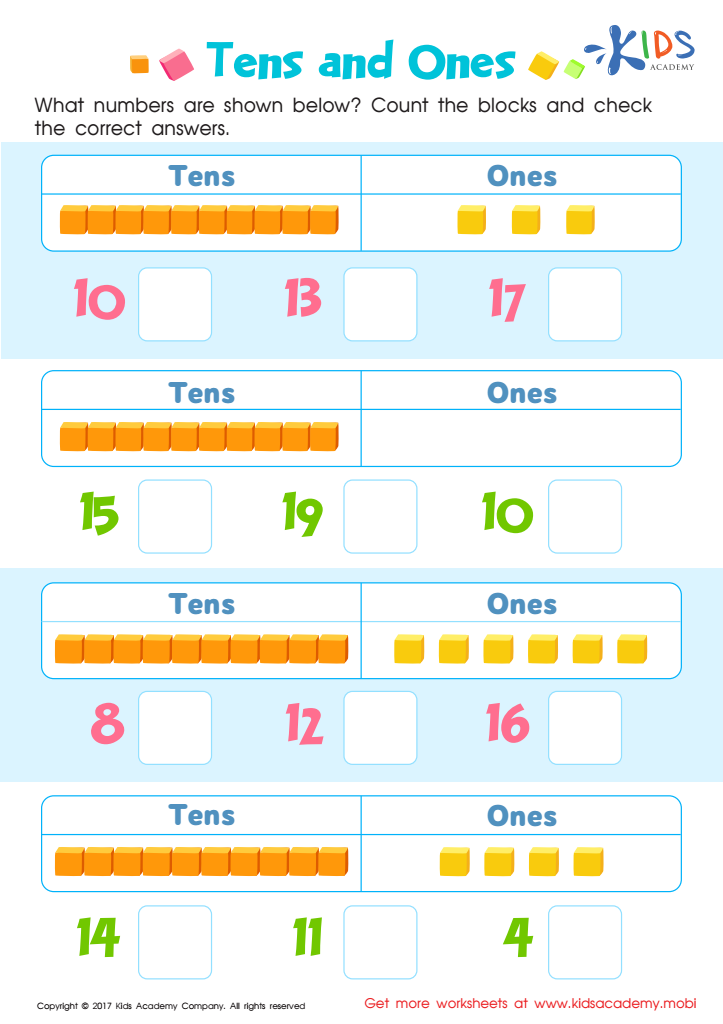

Tens and Ones Worksheet
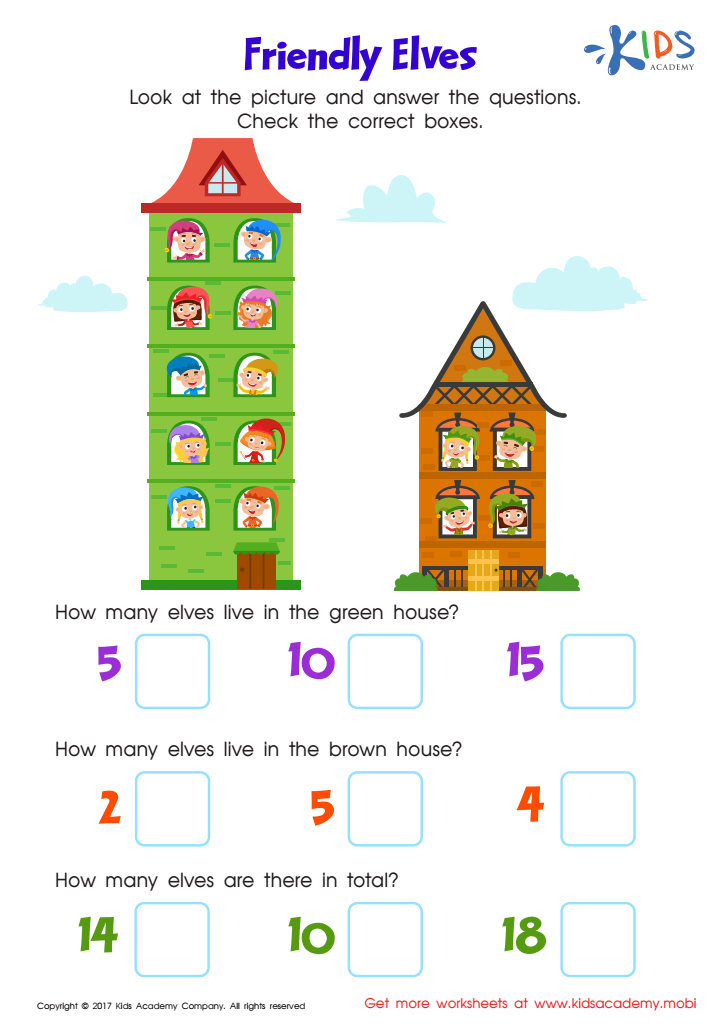

Place Value: Friendly Elves Worksheet
Understanding the basics of mathematics is a cornerstone of early education, and normal worksheets on Numbers 11–20 for Ages 5-6 play a pivotal role in this learning journey. These worksheets are meticulously designed to cater to young learners, making them an indispensable tool for parents and educators alike.
Firstly, these worksheets introduce children to the foundational concept of counting beyond ten, which is a significant milestone in their mathematical development. Grasping the numbers 11–20 lays the groundwork for more complex arithmetic operations they will encounter in the future. It's about building a solid foundation that will support their academic growth in the years to come.
Moreover, normal worksheets on Numbers 11–20 for Ages 5-6 are structured to enhance cognitive skills such as number recognition, sequencing, and counting in an engaging and interactive manner. This age-appropriate approach ensures that children not only learn but also enjoy the process, fostering a positive attitude towards mathematics that can last a lifetime.
Additionally, these worksheets provide a sense of accomplishment and confidence in young learners as they successfully navigate through each exercise. This boost in self-esteem is crucial for their overall development and encourages them to embrace more challenging concepts with enthusiasm.
In conclusion, normal worksheets on Numbers 11–20 for Ages 5-6 are an essential educational tool, perfectly aligned with the developmental needs of young children. They not only facilitate numerical literacy but also contribute to a broader set of skills that are valuable for lifelong learning.

 Assign to My Students
Assign to My Students










